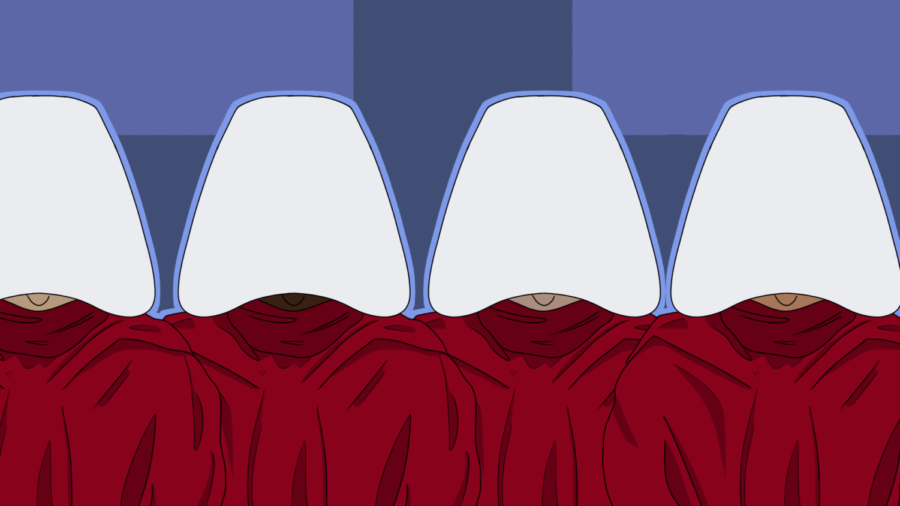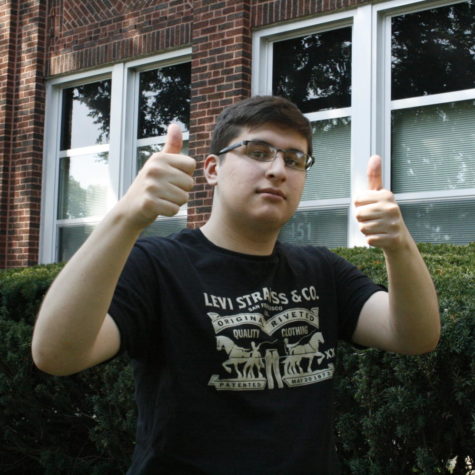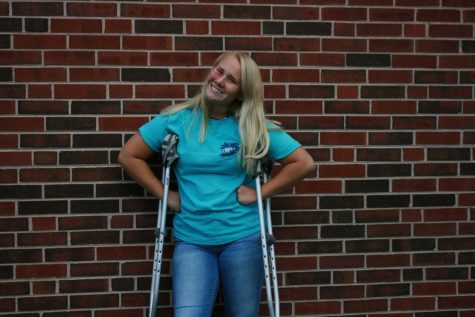No one has the right to control our bodies
Handmaids stand with their heads lowered. Illustration by William Kraft.
October 29, 2021
Not your body, not your choice; that’s the bottom line.
On September 1st, the state of Texas put into place one of the most restrictive abortion laws the United States has ever seen. This legislation blocks mothers from having abortions performed after fetal cardiac activity—non-heartbeat electrical impulses—is detected, which usually occurs around the sixth week of pregnancy when most are still unaware they are pregnant. There is no exception for rape or incest in this incredibly controversial act. Theoretically, a thirteen-year-old girl raped and impregnated by a family member would have to carry the resulting fetus to term. Going even further than this restriction, the Texas legislation encourages community members to report and subsequently sue anyone who performs or aids in the performance of an abortion. If their court case is successful, the plaintiff will have their legal fees paid and can earn a reward of $10,000.
Like so many people around the world, this legislation and its consequences terrify me. In no way will it stop the performance of abortions, only the safe ones. The more I hear about it, the more I fear that all people with a functioning uterus will become no more than Atwood’s handmaids. We no longer have control over our own bodies.
Though I identify as pro-choice, I do not like abortions. No one does. In a perfect world, no one would need an abortion; there would be no rape, incest, unplanned pregnancies, health concerns, or financial worries. We are constantly reminded that this is unfortunately not the world in which we live.
Why someone chooses to have an abortion is frankly not my business. I have no say over who deserves an abortion, and no one other than the person carrying the baby should. Your body, your choice.
No one gets an abortion without first thinking about what it means. Usually, deciding to abort a pregnancy is an extensive, emotional process that affects a person for the rest of their life. Someone contemplating having an abortion is reflecting about the quality of life the baby will have and if that is something they want their child to endure. Whether the person is stuck in an abusive relationship unsafe for a child or doesn’t have the means to provide for the next 18 years, a pregnancy is most often terminated for the good of the child, especially considering how unreliable and politically charged welfare has become. The availability of safe abortions does not mean that this time-consuming reflection will go away. If we outlaw it in certain states, it only means that people will have to travel across state lines or have a dangerous procedure done. Abortion is healthcare, and everyone should have access to it.
The majority of Americans who are against abortion are not actually pro-life. Those who claim to be pro-life are often the ones opposing gun control, resisting mask mandates, and hesitating to be vaccinated for COVID-19. Just last month, the CDC found unvaccinated Americans 11 times more likely to die of COVID-19. These people seem to care more about an insentient clump of cells than the children, who legally cannot be vaccinated, who they could potentially spread COVID to and kill. So, these individuals are not truly about life, they’re pro-birth. But why?
Opposition to abortion largely comes on religious grounds. Many Christians believe that each life is a gift from God, and that life must be “protected and respected absolutely from the moment of conception,” making them against abortion in almost all cases.
I have immense respect for those who live by their faith, whichever religion that may be. I have no respect, however, for those who try to force me to live by their faith. If they believe life begins from conception and that every fetus is a gift, then they should not have an abortion. What their God, who I may or may not believe in, says about abortion applies to them, not me. When our country was founded, we established a separation of church and state for good reason. No one’s religion should play into the laws passed in any part of the United States.
We know that those who follow the Torah do not get tattoos, and people who follow the Qur’an do not eat pork; however, we do not outlaw tattoos or pork consumption because of this. I do understand that tattoos and pork are on a different level of severity than the abortion of a fetus, though, just like abortion, they illustrate how we limit religion’s effects to followers of that faith.
Time after time, there is an argument that abortion isn’t about religion or politics, that it is about morals. Like I said, no one likes abortions, and no one takes the decision lightly. I firmly believe that the person carrying the baby knows more about their individual situation than anyone and therefore has the right to make the decision best for their family.
So, if you don’t think abortion is okay, don’t have one. Worry about your own body because, in the end, it’s my body, so it’s my choice.




